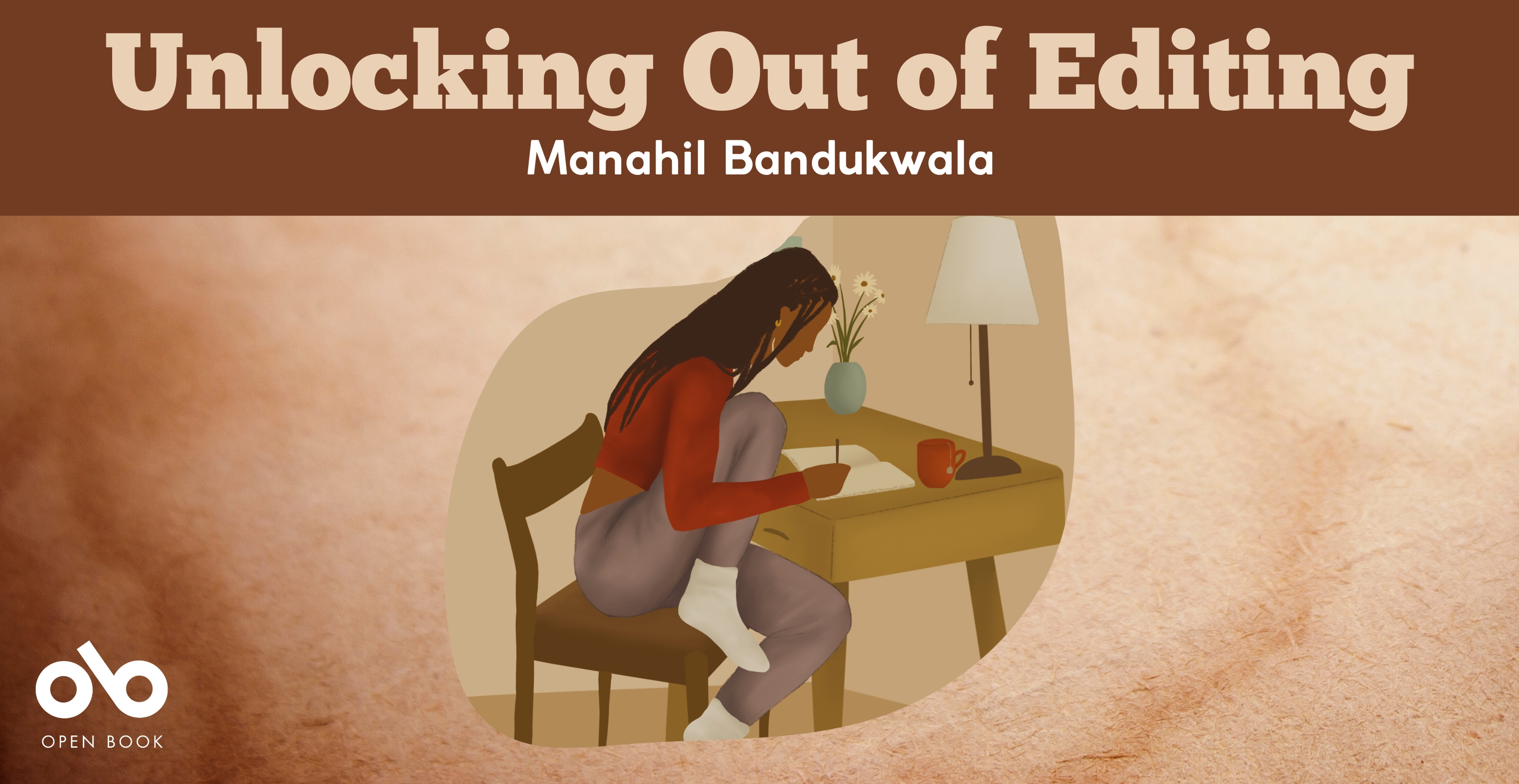Unlocking Out of Editing
By Manahil Bandukwala
In my April 2025 column for Open Book, I wrote about the difficulties of locking into editing. Coming back to a manuscript you feel you’ve completed is tricky, especially when you’re at the stage of scrutinizing every detail.
This month’s column is about unlocking. All manuscripts, whether fiction or poetry or non-fiction, need multiple rounds before they become a book. After every round of revision, you know there is more editing that needs to be done. Knowing all this, how do you leave a manuscript you’ve successfully re-entered? How do you take your brain-space away from the work before you over-edit?
The constant push and pull of manuscript editing will always be jarring. Finding a way to exit editing, especially in the space of a residency or retreat, is even more so. The time spent at a retreat is meant to be dedicated to writing, so veering away from that feels wrong, somehow. I don’t usually write and edit in an artist residency—most of my writing is done in between my workday, when I can find slices of time. This makes the idea of putting work away during dedicated writing time feel all the scarier. What if I don’t find this time again? What if I’ve lost something precious by diverting my attention from my manuscript?
It’s difficult to shake this mindset, no matter how many times I’ve been through the process of creating a book out of scattered ideas. To unlock from my manuscript, I’ve gone on bike rides and walks, watched birds, and dipped my feet in chilly water. I’ve been listening to more music to help my mind put the words aside for a little while. Because, even though there’s always more editing to do, there isn’t a benefit to over-polishing a manuscript. There is a benefit to distance from the words, and a return with a clear head, even if that clarity is only the space of an afternoon.
An edit where I read my work to make sure the tense is consistent throughout the story, for example, can feel less intensive than major edits that involve rewriting entire scenes. In some ways, this part of editing is less time-consuming, but I wouldn’t call it less intensive. The level of scrutiny I need to put into making sure minute details like weather and time of year and ages are consistent takes up a lot of mental energy. At the point I’m doing these kinds of edits, I’m also reaching an end point of sorts.
Your CanLit News
Subscribe to Open Book’s newsletter to get local book events, literary content, writing tips, and more in your inbox
The question “why am I doing this?” is one that comes up every stage of the writing process, including at the moment of setting the manuscript aside for a while. Every writer talks about how time away from their project helps them see what areas need more work, but the reminder is always necessary no matter how many times I go through the cycle of writing. I have to remind myself that not working on writing, even with looming editorial deadlines, is also in the service of writing.
Unlocking is not only important, it’s also going to feel natural. When I’m finally doing things that don’t have to do with my manuscript, like meeting friends or going for long bike rides, I feel confident that my decision to unlock was the best one I could have made.
The views expressed by Open Book columnists are those held by the authors and do not necessarily reflect the views of Open Book.
Manahil Bandukwala is a multidisciplinary artist and writer. She is the author of Women Wide Awake (Mawenzi House, 2023) and Monument (Brick Books, 2022; shortlisted for the Gerald Lampert Memorial Award), and numerous chapbooks. In 2023, she was selected as a Writer's Trust Rising Star. See her work at manahilbandukwala.com.





